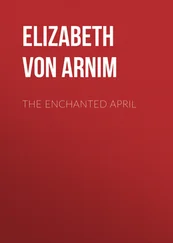Elizabeth von Arnim - Christine
Здесь есть возможность читать онлайн «Elizabeth von Arnim - Christine» — ознакомительный отрывок электронной книги совершенно бесплатно, а после прочтения отрывка купить полную версию. В некоторых случаях можно слушать аудио, скачать через торрент в формате fb2 и присутствует краткое содержание. Жанр: prose_military, foreign_antique, foreign_prose, на английском языке. Описание произведения, (предисловие) а так же отзывы посетителей доступны на портале библиотеки ЛибКат.
- Название:Christine
- Автор:
- Жанр:
- Год:неизвестен
- ISBN:нет данных
- Рейтинг книги:3 / 5. Голосов: 1
-
Избранное:Добавить в избранное
- Отзывы:
-
Ваша оценка:
- 60
- 1
- 2
- 3
- 4
- 5
Christine: краткое содержание, описание и аннотация
Предлагаем к чтению аннотацию, описание, краткое содержание или предисловие (зависит от того, что написал сам автор книги «Christine»). Если вы не нашли необходимую информацию о книге — напишите в комментариях, мы постараемся отыскать её.
Christine — читать онлайн ознакомительный отрывок
Ниже представлен текст книги, разбитый по страницам. Система сохранения места последней прочитанной страницы, позволяет с удобством читать онлайн бесплатно книгу «Christine», без необходимости каждый раз заново искать на чём Вы остановились. Поставьте закладку, и сможете в любой момент перейти на страницу, на которой закончили чтение.
Интервал:
Закладка:
"But—" I began, remembering their motto, bestowed on them by Bismarck,
"Yes, yes, I know," he interrupted. "It is not, however, true. The contrary is the truth. We Germans fear not God, but everything else in the world. It is only fear that makes us polite, fear of the duel; for, like the child and the savage, we have not had time to acquire the habit of good manners, the habit which makes manners inevitable and invariable, and it is not natural to us to be polite. We are polite only by the force of fear. Consequently—for all men must have their relaxations—whenever we meet the weak, the beneath us, the momentarily helpless, we are brutal. It is an immense relief to be for a moment natural. Every German welcomes even the smallest opportunity."
You would be greatly interested in Kloster, I'm certain. He sits there, his fiddle on his fat little knees, his bow punctuating his sentences with quivers and raps, his shiny bald head reflecting the light from the window behind him, and his eyes coming very much out of his face, which is excessively red. He looks like an amiable prawn; not in the least like a person with an active and destructive mind, not in the least like a great musician. He has the very opposite of the bushy eyebrows and overhanging forehead and deep set eyes and lots of hair you're supposed to have if you've got much music in you. He came over to me the other day after I had finished playing, and stretched up—he's a good bit smaller than I am—and carefully drew his finger along my eyebrows, each in turn. I couldn't think what he was doing.
"My finger is clean, Mees Chrees," he said, seeing me draw back. "I have just wiped it, Be not, therefore, afraid. But you have the real Beethoven brow—the very shape—and I must touch it. I regret if it incommodes you, but I must touch it. I have seen no such resemblance to the brow of the Master. You might be his child."
I needn't tell you, darling mother, that I went back to the boarders and the midday guests not minding them much. If I only could talk German properly I would have loved to have leant across the table to Herr Mannfried, an unwholesome looking young man who comes in to dinner every day from a bank in the Potsdamerstrasse, and is very full of that hatred which is really passion for England, and has pale hair and a mouth exactly like two scarlet slugs—I'm sorry to be so horrid, but it is like two scarlet slugs—and said,—"Have you noticed that I have a Beethovenkopf ? What do you think of me, an Englanderin , having such a thing? One of your own great men says so, so it must be true."
We are studying the Bach Chaconne now. He is showing me a different reading of it, his idea. He is going to play it at the Philarmonie here next week. I wish you could hear him. He was intending to go to London this season and play with a special orchestra of picked players, but has changed his mind. I asked him why, and he shrugged his shoulder and said his agent, who arranges these things, seemed to think he had better not. I asked him why again—you know my persistency—for I can't conceive why it should be better not for London to have such a joy and for him to give it, but he only shrugged his shoulder again, and said he always did what his agent told him to do. "My agent knows his business, my dear Mees Chrees," he said. "I put my affairs in his hands, and having done so I obey him. It saves trouble. Obedience is a comfortable thing."
"Then why—" I began, remembering the things he says about kings and masters and persons in authority; but he picked up his violin and began to play a bit. "See," he said, "this is how—"
And when he plays I can only stand and listen. It is like a spell. One stands there, and forgets. . . .
Evening .
I've been reading your last darling letter again, so full of love, so full of thought for me, out in a corner of the Thiergarten this afternoon, and I see that while I'm eagerly writing and writing to you, page after page of the things I want to tell you, I forget to tell you the things you want to know. I believe I never answer any of your questions! It's because I'm so all right, so comfortable as far as my body goes, that I don't remember to say so. I have heaps to eat, and it is very satisfying food, being German, and will make me grow sideways quite soon, I should think, for Frau Berg fills us up daily with dumplings, and I'm certain they must end by somehow showing; and I haven't had a single cold since I've been here, so I'm outgrowing them at last; and I'm not sitting up late reading,—I couldn't if I tried, for Wanda, the general servant, who is general also in her person rather than particular—aren't I being funny—comes at ten o'clock each night on her way to bed and takes away my lamp.
"Rules," said Frau Berg briefly, when I asked if it wasn't a little early to leave me in the dark. "And you are not left in the dark. Have I not provided a candle and matches for the chance infirmities of the night?"
But the candle is cheap and dim, so I don't sit up trying to read by that. I preserve it wholly for the infirmities.
I've been in the Thiergarten most of the afternoon, sitting in a green corner I found where there is some grass and daisies down by a pond and away from a path, and accordingly away from the Sunday crowds. I watched the birds, and read the Winter's Tale, and picked some daisies, and felt very happy. The daisies are in a saucer before me at this moment. Everything smelt so good,—so warm, and sweet, and young, with the leaves on the oaks still little and delicate. Life is an admirable arrangement, isn't it, little mother. It is so clever of it to have a June in every year and a morning in every day, let alone things like birds, and Shakespeare, and one's work. You've sometimes told me, when I was being particularly happy, that there were even greater happiness ahead for me,—when I have a lover, you said; when I have a husband; when I have a child. I suppose you know, my wise, beloved mother; but the delight of work, of doing the work well that one is best fitted for, will be very hard to beat. It is an exultation, a rapture, that manifest progress to better and better results through one's own effort. After all, being obliged on Sundays to do nothing isn't so bad, because then I have time to think, to step back a little and look at life.
See what a quiet afternoon sunning myself among daisies has done for me. A week ago I was measuring the months to be got through before being with you again, in dismay. Now I feel as if I were very happily climbing up a pleasant hill, just steep enough to make me glad I can climb well, and all the way is beautiful and safe, and on the top there is you. To get to the top will be perfect joy, but the getting there is very wonderful too. You'll judge, from all this that I've had a happy week, that work is going well, and that I'm hopeful and confident. I mustn't be too confident, I know, but confidence is a great thing to work on. I've never done anything good on days of dejection.
Goodnight, dear mother. I feel so close to you tonight, just as if you were here in the room with me, and I had only to put out my finger and touch Love. I don't believe there's much in this body business. It is only spirit that matters really; and nothing can stop your spirit and mine being together.
Your Chris.
Still, a body is a great comfort when it comes to wanting to kiss one's darling mother.
Berlin, Sunday, June 2lst, 1914
My precious mother,
The weeks fly by, full of work and Weltpolitik . They talk of nothing here at meals but this Weltpolitik . I've just been having a dose of it at breakfast. To say that the boarders are interested in it is to speak feebly: they blaze with interest, they explode with it, they scorch and sizzle. And they are so pugnacious! Not to each other, for contrary to the attitude at Kloster's they are knit together by the toughest band of uncritical and obedient admiration for everything German, but they are pugnacious to the Swede girl and myself. Especially to myself. There is a holy calm about the Swede girl that nothing can disturb. She has an enviable gift for getting on with her meals and saying nothing. I wish I had it. Directly I have learned a new German word I want to say it. I accumulate German words every day, of course, and there's something in my nature and something in the way I'm talked at and to at Frau Berg's table that makes me want to say all the words I've got as quickly as possible. And as I can't string them into sentences my conversation consists of single words, which produce a very odd effect, quite unintended, of detached explosions. When I've come to the end of them I take to English, and the boarders plunge in after me, and swim or drown in it according to their several ability.
Читать дальшеИнтервал:
Закладка:
Похожие книги на «Christine»
Представляем Вашему вниманию похожие книги на «Christine» списком для выбора. Мы отобрали схожую по названию и смыслу литературу в надежде предоставить читателям больше вариантов отыскать новые, интересные, ещё непрочитанные произведения.
Обсуждение, отзывы о книге «Christine» и просто собственные мнения читателей. Оставьте ваши комментарии, напишите, что Вы думаете о произведении, его смысле или главных героях. Укажите что конкретно понравилось, а что нет, и почему Вы так считаете.












